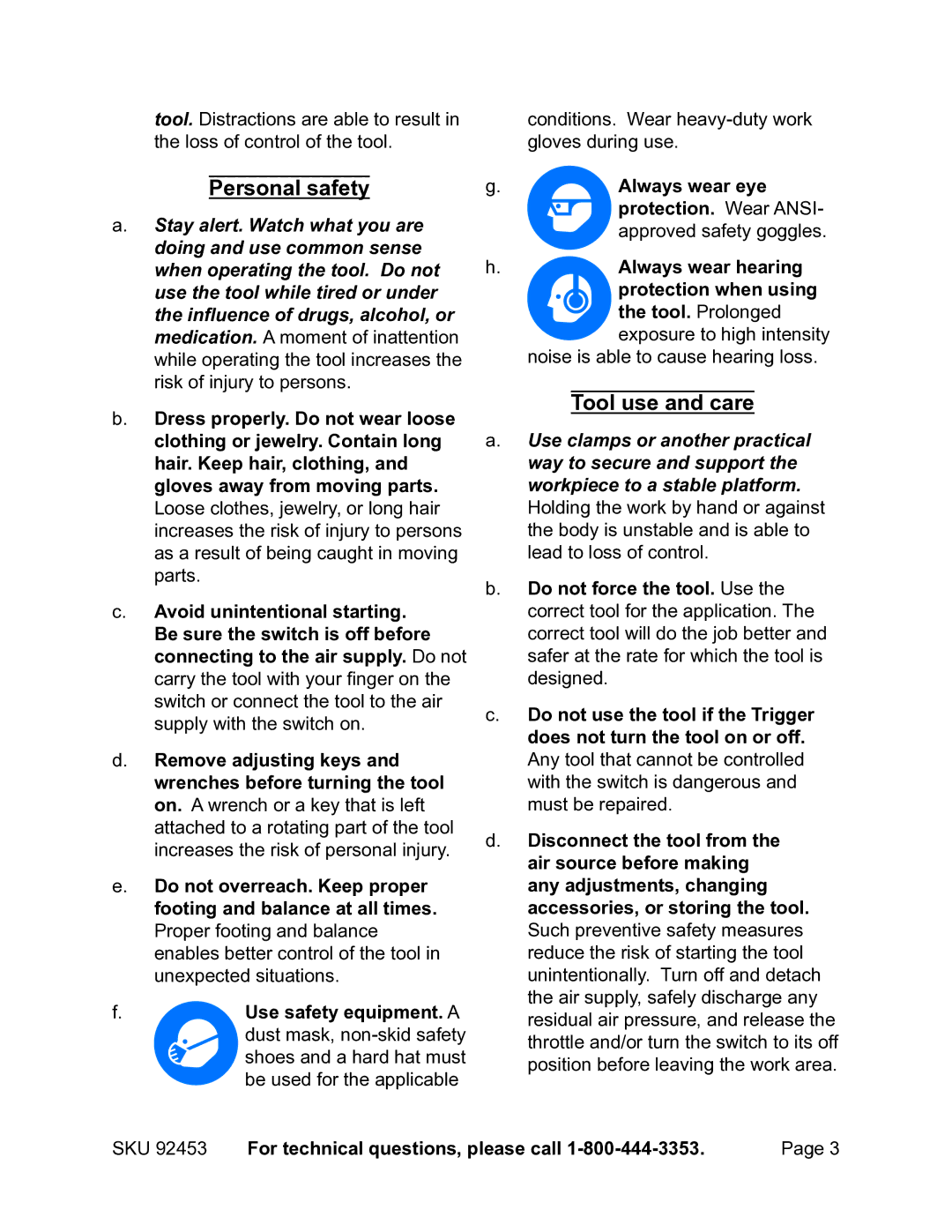
tool. Distractions are able to result in the loss of control of the tool.
Personal safety
a.Stay alert. Watch what you are doing and use common sense when operating the tool. Do not use the tool while tired or under the influence of drugs, alcohol, or medication. A moment of inattention while operating the tool increases the risk of injury to persons.
b.Dress properly. Do not wear loose clothing or jewelry. Contain long hair. Keep hair, clothing, and gloves away from moving parts.
Loose clothes, jewelry, or long hair increases the risk of injury to persons as a result of being caught in moving parts.
c.Avoid unintentional starting. Be sure the switch is off before connecting to the air supply. Do not carry the tool with your finger on the switch or connect the tool to the air supply with the switch on.
d.Remove adjusting keys and wrenches before turning the tool on. A wrench or a key that is left attached to a rotating part of the tool increases the risk of personal injury.
e.Do not overreach. Keep proper footing and balance at all times. Proper footing and balance enables better control of the tool in unexpected situations.
f. | Use safety equipment. A |
| dust mask, |
| shoes and a hard hat must |
| be used for the applicable |
conditions. Wear
g.Always wear eye protection. Wear ANSI- approved safety goggles.
h.Always wear hearing protection when using the tool. Prolonged exposure to high intensity
noise is able to cause hearing loss.
Tool use and care
a.Use clamps or another practical way to secure and support the workpiece to a stable platform.
Holding the work by hand or against the body is unstable and is able to lead to loss of control.
b.Do not force the tool. Use the correct tool for the application. The correct tool will do the job better and safer at the rate for which the tool is designed.
c.Do not use the tool if the Trigger does not turn the tool on or off. Any tool that cannot be controlled with the switch is dangerous and must be repaired.
d.Disconnect the tool from the air source before making any adjustments, changing accessories, or storing the tool. Such preventive safety measures reduce the risk of starting the tool unintentionally. Turn off and detach the air supply, safely discharge any residual air pressure, and release the throttle and/or turn the switch to its off position before leaving the work area.
SKU 92453 | For technical questions, please call | Page 3 |
